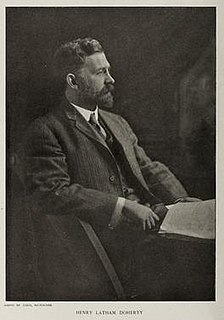A Quote by Andrew Sean Greer
A lot of problems get solved in those sort of in-between moments when your subconscious has been working on some problem. If you keep it spinning, you can fix ideas sometimes better than if you focus on them directly.
Related Quotes
To politicians, solved problems represent a dire threat - of unemployment and poverty. That's why no problem ever tackled by the government has ever been solved. What they want is lots of problems they can promise to solve, so that we'll keep electing them - or letting them keep their jobs in a bureaucracy metastasizing like cancer.
It hasn't always been easy. There's a lot of hard moments. Sometimes you learn from the end of the bench. Sometimes you learn from injuries. Sometimes you learn the most through the hard things. If you can keep a good attitude and keep on working, eventually situations change, and you can put those things to use.
When you start a company, it's more an art than a science because it's totally unknown. Instead of solving high-profile problems, try to solve something that's deeply personal to you. Ideally, if you're an ordinary person and you've just solved your problem, you might have solved the problem for millions of people.
I've been on my share of network dramas and comedies, and the problem sometimes in a network is they have a single-minded focus on making the show true to whatever genre it is. If you're on a drama, it better be procedural, it better fulfill all the demands of a procedural show, and you better keep those episodes independent, so if I'm watching the show in seven years as its syndicated on some other cable network, I don't have to know what happened before or after the episode. If you're on a comedy, everything has to be funny and wacky and zany.
Abraham Maslow taught me, that when you're working with a patient, never let them spend more than a few moments on the problem, because what you think about is what expands, and if they're talking about the problem all the time, when they leave your session, the problem will expand. Get 'em to put their attention on what they intend to create, or on solutions.
The rationale for accepting or rejecting any theory is thus fundamentally based on the idea of problem-solving progress. If one research tradition has solved more important problems than its rivals, then accepting that tradition is rational precisely to the degree that we are aiming to "progress," i.e., to maximize the scope f solved problems. In other words, the choice of one tradition over its rivals is a progressive (and thus a rational) choice precisely to the extent that the chosen tradition is a better problem solver than its rivals.
I think that we Americans, in particular, tend to think too directly about problems. If there's a problem we want to basically go in with a screwdriver or else drop bombs on it. A better way to solve problems is to think indirectly and try to change the environment. So I think you can gain much better self-control not so much by working on yourself as by looking at the situations you're in and the people you hang around, and changing your environment.







































